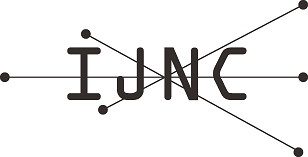Extensions of Access-Point Aggregation Algorithm for Large-scale Wireless Local Area Networks
Abstract
Recently, many organizations such as universities and companies have deployed wireless local area networks (WLANs) to cover the whole site for ubiquitous network services. In these WLANs, wireless access-points (APs) are often managed independently by different groups such as laboratories or departments. Then, a host may detect signals from multiple APs, which can degrade the communication performance due to radio interferences among them and increase operational costs. Previously, we proposed the AP aggregation algorithm to solve this problem by minimizing the number of active APs through aggregating them using the virtual AP technology. However, our extensive simulations in various instances found that 1) the minimization of active APs sometimes excessively degrades the network performance, and 2) the sequential optimization of host associations does not always reach optimal where slow links are still used. In this paper, we propose two extensions of the AP aggregation algorithm to solve these problems by 1) ensuring the minimum average throughput for any host by adding active APs and 2) further optimizing host associations by changing multiple hosts simultaneously in the host association finalization phase. We verify the effectiveness through simulations in four network instances using the WIMNET simulator.
Keywords
Full Text:
PDFRefbacks
- There are currently no refbacks.
